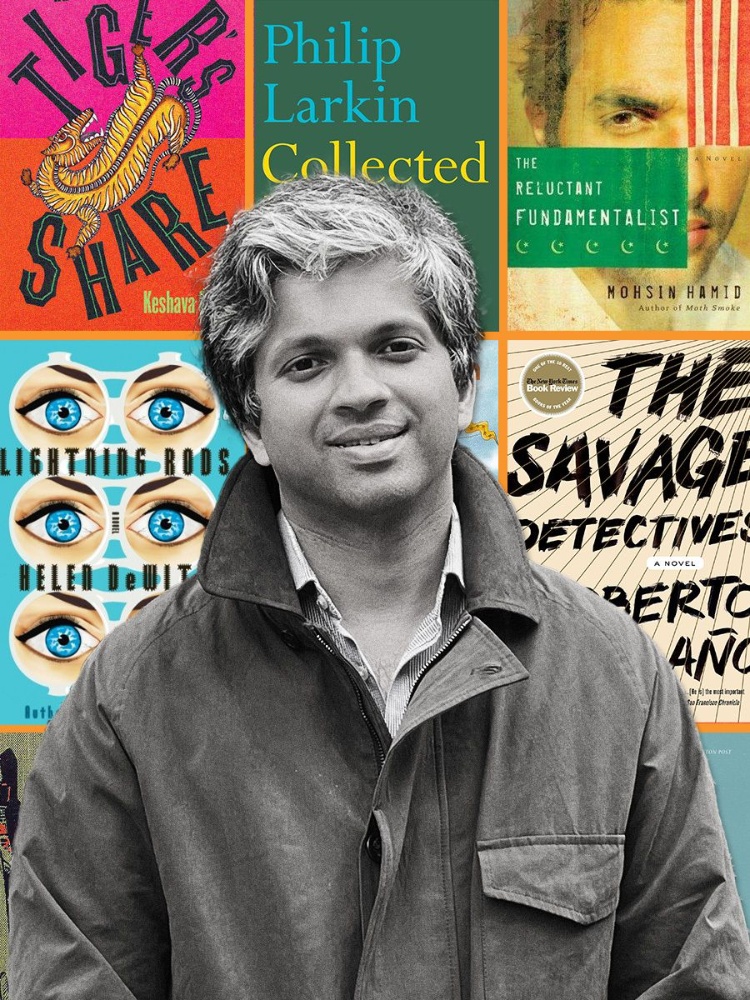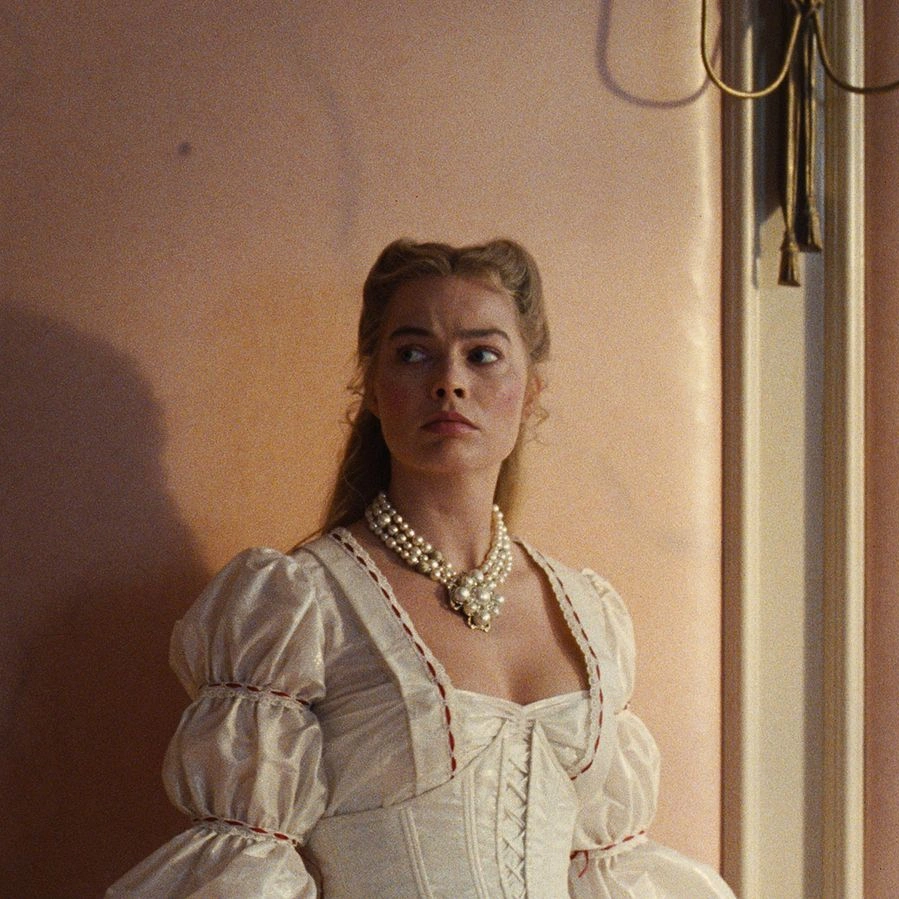It had been six years since Keshava Guha’s last novel. In March, when The Tiger’s Share finally showed up on shelves at our favourite bookstores, it brought us a Delhi novel that looked at class, privilege, gender, and inheritance in a smog-choked setting.
A tale of two women with a hefty dose of sibling drama, an existential question, and a smattering of patriarchy, Guha’s second book is the work of a perfectionist. “I try to get each sentence, paragraph and page as close to ‘right’ as possible the first time, so the first full draft is a matter of years, not months,” says the Harvard grad of the five years that went into the making of his novel.
The Tiger’s Share is written from the point of view of Tara, a lawyer—a character that Guha carved from the women in his life: his wife, sister, mother, agent, and close friends. “It was also important not to fixate too much on the question of writing ‘as a woman’—Tara is a woman and I’m not, but I had to make her convincing and alive as a human being in the whole, not just as a woman,” adds the author, who is already onto his next novel. Once again set in the capital, but also capturing the voice of the diaspora, his upcoming book is likely to be “more satirical than The Tiger’s Share” and will feature “two male protagonists.” We just hope he won’t make us wait another six years.
While asking authors to share what they read is hardly a novel idea, Guha, a former editor at Juggernaut Books, was the perfect fit for this assignment. At any given time, he’s the kind of writer who has a novel, a non-fiction read, and a collection of poems on his bedside table. The habit probably caught on in school, when the author would hide PG Wodehouse novels and Redwall books inside his Math textbooks while pretending to revise for his imminent exams.
When The Nod asked him to pick books that inspired and influenced him, he wisely asked if he could send us his answers over email. With time to reflect, he handpicked a long scroll of his favourites, many of which you’ll be tempted to add to your TBR.
THE ONE BOOK THAT...
...you’d pick from your collection if your house was on fire
Philip Larkin’s Collected Poems.
...made you skip work
Shirley Hazzard’s The Great Fire. Perfect sentence after perfect sentence, and a love story between two truly admirable characters. Proof that the best literature can also be the most enjoyable.
...made you go down a Wikipedia hole
Ragtime by EL Doctorow. In part it’s a wholly fictional narrative of an African-American pianist’s quest for justice—a retelling of Heinrich von Kleist’s novella Michael Kohlhaas—but it is also a thrilling portrait of America at the turn of the 20th century, with cameos from dozens of real-life characters, including Harry Houdini, Emma Goldman, JP Morgan and many others who were new to me.
...you took inspiration from while writing The Tiger’s Share
The writings of Mahadev Govind Ranade, especially a collection called The Wisdom of a Modern Rishi. That lost tradition of idealism—when elites looked beyond their own narrow interests—is what Tara and her father, in different ways, look back to and hope to revive.
...you’re currently reading
In fiction, it is Alexander Starritt’s Drayton and Mackenzie. In non-fiction, Frances Wilson’s Electric Spark (a biography of a young Muriel Spark) as well as poetry by Frederick Seidel.
...you’re looking forward to reading
Kiran Desai’s new novel and Srinath Raghavan’s history of Indira Gandhi’s prime ministership.
...you loved as a kid
Richmal Crompton’s William Brown books. They’re still the funniest children’s books ever, with an anarchic protagonist who is at war with the hypocrisy and mindless conformity of the adult world. The fact that Enid Blyton is widely read but Crompton is out of fashion is depressing beyond measure.
...that also covers family dynamics
Thomas Mann’s Buddenbrooks. It’s set in Lübeck, on Germany’s Baltic coast, and takes place in most of the 19th century, but it is shockingly recognisable to a modern Indian reader, because it is the great ‘bania’ (or insert other mercantile community) novel—a portrait of a family and its business over four generations. As with so many Indian business families, the Buddenbrooks’ decline and fall ultimately stems from patriarchal conservatism—their refusal to let their daughter Toni either marry the man of her choice or work in the family firm (to which she is much more suited than her brothers) has devastating consequences.
...you’d re-read on a rainy day
Laurie Colwin’s Family Happiness. It’s the literary equivalent of a gelato—it goes down so easily and deliciously that it’s easy to miss the skill with which it is made.
...helped you become a better writer
WH Auden’s The Dyer’s Hand. The opening sections, “Reading” and “Writing”, are essentially collections of long aphorisms—and full of the wisest writing advice I’ve ever encountered.
...made you laugh out loud
All of Helen DeWitt’s books, but especially Lightning Rods, the most outrageous satire of American capitalism I’ve ever read, and The English Understand Wool, an attack on the publishing business so excoriating that it makes Yellowface seem tame by comparison.
...has the best ending
The Gate of Angels by Penelope Fitzgerald. The last 30 or so pages are a high-wire act—you don’t know where she’s going or how she’s going to pull off whatever it is she’s about to do. (Runner-up: The Beginning of Spring by the same author.)
...made you want to book a flight asap (and to where?)
Roberto Bolaño’s The Savage Detectives—its first section is a joyous account of the antics of a group of young poets in Mexico City. Ideally, this flight would double up as a time machine, to the early 1970s.
...had a cover that made you want to buy it
Bena Sareen’s cover for the Indian edition of Mohsin Hamid’s The Reluctant Fundamentalist. I was in high school when the book came out, and wasn’t yet familiar with Hamid or Moth Smoke. I bought The Reluctant Fundamentalist purely on the strength of the cover. Looking at the several dozen international editions of that novel, I still think the Penguin India cover is by far the best.
...you want to see turned into a TV show or movie
Movie: Nirmal Verma’s Ve Din (Days of Longing, in Krishna Baldev Vaid’s beautiful, if somewhat free, translation), the story of a romance (of sorts) between an Indian student and an Austrian woman in 1960s Prague. As directed by Rainer Werner Fassbinder.
TV show: Gyan Chaturvedi’s Baramasi, set in Bundelkhand and the blackest of comedies, which in Salim Yusufji’s English translation was re-titled Alipura. Nothing in prose is more difficult to shepherd from one language to another than humour, and I’ve never seen anyone do a better job of it than Yusufji. But this show would of course be in Hindi. Maybe a ‘comeback vehicle’ for Anurag Kashyap?
...you have read multiple times
There is no writer I have spent more time reading and re-reading than Robert Christgau, “dean of American rock critics” since 1967 and still going strong. Christgau has written books and hundreds of essays, but what he’s really known for are 13,000-plus ‘capsule reviews’—each barely longer than a paragraph—of albums. The entire archive is available for free on www.robertchristgau.com and new reviews are published on his monthly Substack. As a teenager, he made me want to be a writer; two decades later, he continues to inspire, above all through his undying love of the job.
...you cannot claim you’ve understood
Mario Vargas Llosa is one of my favourite writers, but on first ‘reading’ I could make very little sense of The Green House, which some regard as his best book.
...got you out of a reading slump
Poetry is my first love as a reader, but over time I had fallen out of the habit of reading new poetry. In the summer of 2019, in the midst of a sudden—and life-changing—personal crisis, I went to Edinburgh for the wedding of a friend. I didn’t feel up to reading fiction and so, after years, went to the poetry section of a bookshop, where I picked up Go Giants by Nick Laird. I had never heard of him, much less knew that he is married to Zadie Smith. Discovering a new writer whom you love is more or less the best feeling in the world—I read Go Giants in a single sitting, and became, once again, a reader of poetry.
...perfectly captures the essence of the capital
Rana Dasgupta’s Capital never received the sort of attention that, say, Suketu Mehta’s Maximum City did, but a decade after it came out it really holds up as a portrait of Delhi’s 21st-century transformation—the changes in its physical landscape and its social and moral values.


